Event details
18 June - 16 July 2020
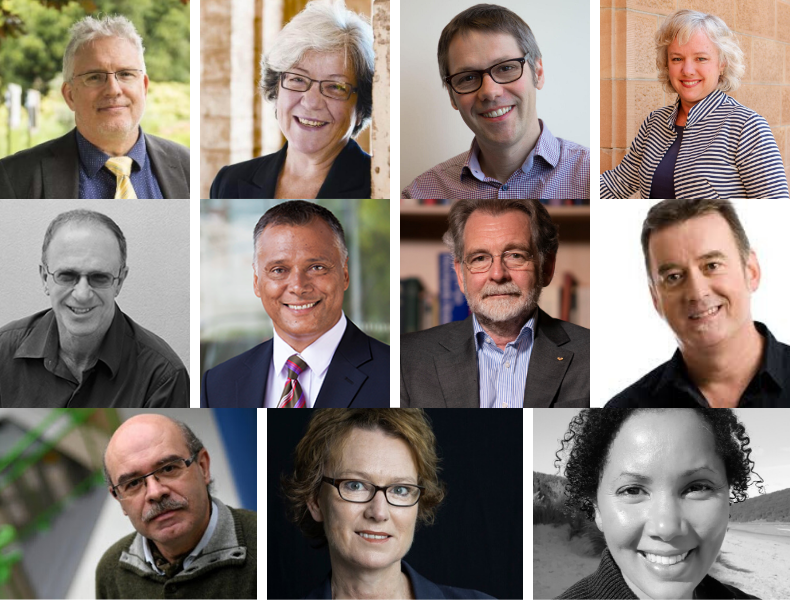
THE BOB HAWKE PRIME MINISTERIAL CENTRE AND THE CONVERSATION ONLINE SERIES
Presented by The Bob Hawke Prime Ministerial Centre and The Conversation this online series is an opportunity for us to remain connected and unlock knowledge from some of the world's leading voices. Hear from The Conversation's academic experts who will inject evidence into public debate. Our topics and speakers include:
Crisis and Denial
Dr Carmen Lawrence, Professor Julie Leask, Professor Stephan Lewandowsky, Facilitated by Misha Ketchell, Editor, The Conversation
Access Video HERE
The Domino Effect: Climate Change and Pandemics
Dr Jean-François Guégan, Fiona Armstrong, Dr Natasha Chassagne, Facilitated by Misha Ketchell, Editor, The Conversation
Broadcast: Thursday 2 July, 6pm - 7.15pm, ACST / 6.30pm - 7.45pm AEST
Co-presented with The Embassy of France in Australia, as part of the French Australian Conversations (FAC) series
Access Video HERE
Borders and the Pandemic
Emeritus Professor Hugh White AO, Professor Stan Grant, Professorial Fellow Dennis Altman AM, Facilitated by Paul Barclay, ABC Big Ideas
Access Video HERE![]()
BORDERS AND THE PANDEMIC
BROADCAST: THURSDAY 16 JULY, 6PM - 7.15PM, ACST / 6.30PM - 7.45PM, AEST
Access Video HERE
People and countries have been forced apart by the pandemic. External borders broken down by globalisation were hastily re-erected. Internal borders were raised as we gave up our personal liberties to stay safe. As the borders start to reopen, what happens next? Should we bring business back on-shore? Should we surrender our privacy to technology? Will we see a rise in racism and xenophobia? Of authoritarianism? Join Hugh White AO (Emeritus Professor of Strategic Studies, Strategic and Defence Studies Centre at Australian National University), Professor Stan Grant (journalist and Vice Chancellor’s Chair of Australian-Indigenous Belonging at Charles Sturt University), and Dennis Altman AM (Professorial Fellow in Human Security, Institute for Human Security at La Trobe University) as they discuss how the pandemic has changed the way we think about borders. Facilitated by Paul Barclay, presenter of ABC Radio National's Big Ideas.
Please register your interest so that we can keep you up-to-date and to submit any questions for the Panellists to consider. A link to this online event will be sent to registrants to view the stream.
HUGH WHITE AO
EMERITUS PROFESSOR OF STRATEGIC STUDIES, STRATEGIC AND DEFENCE STUDIES CENTRE, AUSTRALIAN NATIONAL UNIVERSITY
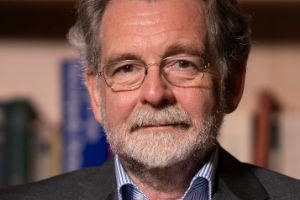
Professor Hugh White AO is Emeritus Professor of Strategic Studies in the Strategic and Defence Studies Centre at the Australian National University. He studies Australian strategic and defence policy, and regional and global strategic issues as they affect Australia. He has been an intelligence analyst, a journalist, a senior staffer to Australian Defence Minister Kim Beazley and Prime Minister Bob Hawke, and a senior official in the Australian Defence Department, where from 1995 to 2000 he was Deputy Secretary for Strategy and Intelligence. He was the principal author of Australia’s 2000 Defence White Paper. His recent publications include Power Shift: Australia’s future between Washington and Beijing (2010), The China Choice: Why America should share power (2012), Without America: Australia’s future in the New Asia (2017), and How to defend Australia (2019). He writes a regular column for the Straits Times of Singapore.
PROFESSOR STAN GRANT
VICE CHANCELLOR'S CHAIR OF AUSTRALIAN/INDIGENOUS BELONGING, CHARLES STURT UNIVERSITY
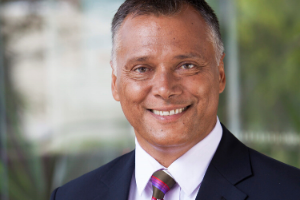
Professor Stan Grant is the Vice Chancellor's Chair of Australian/Indigenous Belonging at Charles Sturt University. He was formerly ABC's Global Affairs and Indigenous Affairs Analyst. He is one of Australia's most respected and awarded journalists, with more than 30 years experience in radio and television news and current affairs. Stan has a strong reputation for independence and integrity and has interviewed international political and business leaders, including our own prime ministers and senior ministers. Prior to taking up his latest role Stan served for a decade as a Senior International Correspondent for CNN in Asia and the Middle East, broadcasting to an audience of millions around the world. Stan is an award winning and best selling author of several books and has contributed articles to many major Australian newspapers, magazines and journals.
DENNIS ALTMAN AM
PROFESSORIAL FELLOW IN HUMAN SECURITY, INSTITUTE FOR HUMAN SECURITY, LA TROBE UNIVERSITY
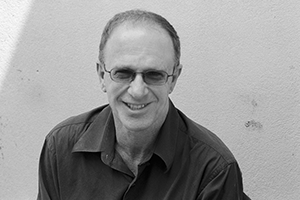
Dennis Altman AM is Emeritus Professor and Professorial Fellow in the Institute for Human Security at La Trobe University. Dennis was President of the AIDS Society of Asia and the Pacific (2001-5) and has been a Board member of Oxfam Australia. In 2005 he was Visiting Professor of Australian Studies at Harvard and was listed by The Bulletin as one of the 100 most influential Australians ever (July 2006), and is a Member of the Order of Australia June 2008. He is an Ambassador for the Human Rights Law Centre and Patron Australian Lesbian and Gay Archives, the Pride Foundation and Naz Foundation International. Dennis is the son of Jewish refugees who first came to attention with the publication of his book Homosexual: Oppression & Liberation in 1972. Recent books include Global Sex, The End of the Homosexual? and [with Jonathan Symons] Queer Wars. Monash University Press published Unrequited Love: Diary of an Accidental Activist in 2019. Dennis has been a member of Amnesty since the mid-1980s, and took part in the original debates that saw Amnesty first adopt people imprisoned because of their sexuality as prisoners of conscience.
Photo credit: Ponch Hawkes
FACILITATOR: PAUL BARCLAY
ABC BIG IDEAS
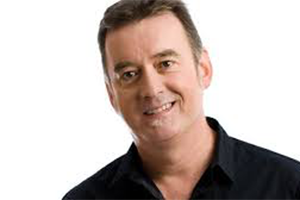
Paul Barclay is a Walkley Award winning journalist and broadcaster with an appetite for ideas and in-depth analysis and discussion.
Paul has produced countless stories over more than 20 years for an array of programs on virtually all ABC radio networks.
![]()
THE DOMINO EFFECT:
CLIMATE CHANGE AND PANDEMICS
BROADCAST: THURSDAY 2 JULY, 6PM - 7.15PM, ACST / 6.30PM - 7.45PM, AEST
ACCESS VIDEO HERE
The COVID-19 crisis and the climate and biodiversity crises are deeply connected. All animals harbour viruses and other pathogens, and when environmental pressures force them into contact with humans, the results can be catastrophic. Environmental damage can also make humans more susceptible to the effects of infectious diseases.
Governments have demonstrated they can take immediate, radical emergency measures, which go beyond purely economic concerns, to protect the well-being of all. And yet, despite being declared a global emergency, the world has largely failed to address climate change and the environmental effects of our pursuit for economic growth.
Join infectious disease and environmental health experts Dr Jean-François Guégan (Director of Research at the Institute of Research for Development, France), Fiona Armstrong (Executive Director and Founder of Climate and Health Alliance) and Dr Natasha Chassagne (Adjunct Research Fellow, Centre for Social Impact, Swinburne University) as they discuss why, for humans to survive, it is critical to connect human health, civilisation and the natural systems on which we depend. Facilitated by Misha Ketchell, Editor at The Conversation.
Please register your interest so that we can keep you up-to-date and to submit any questions for the Panellists to consider. A link to this online event will be sent to registrants to view the stream.
PANELLISTS
DR JEAN-FRANÇOIS GUÉGAN
DIRECTOR OF RESEARCH, INSTITUTE OF RESEARCH FOR DEVELOPMENT (IRD) / INSTITUT DE RECHERCHE POUR LE DÉVELOPPEMENT (IRD), FRANCE
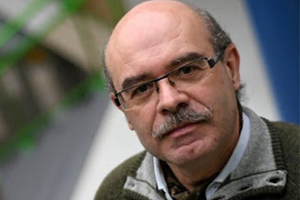
Jean-François Guégan is a Research Professor “de classe exceptionnelle” at the IRD, now hosted at INRAE, in Montpellier. He has also been a teacher and head of teaching units at the University of Montpellier for almost 15 years, Professor at the School of Advanced Studies in Public Health (EHESP), Paris, Rennes, and co-head of a Masters course of international public health in English, (Erasmus Mundus) where he teaches the issue of Global change and health. An expert at the WHO, he is also a member of the French National Committee on Global Changes (CNFCG) and former member of the High Council for Public Health (HCSP) where he has been in charge of several official State reports, including one on emerging infectious diseases and national preparedness.
With nearly two years of experience in the Agri-Food, he is involved in the transfer of scientific knowledge to public decision-makers and is co-organiser of an annual Seminar of the Val-de-Grâce School on the societal, economic, health, political, media consequences of emerging infectious diseases (www.malinfemerg.org). He has directed and participated in many national and international research programs on animal/environment-to-human transmission and emerging infectious diseases, and as a former member of the HCSP he co-chaired several national reports on the consequences of climate change on health, and on emerging infectious diseases, as well as international reports, in particular for the Convention on Biological Diversity and for the WHO. He has published over 170 scientific publications in international journals, has coproduced 11 books, including 5 for higher education, and gave 180 national and international conferences.
For the past 20 years, he has been interested in the consequences of environmental changes, climate change, loss of biological diversity and habitat changes on infectious disease transmission and emerging disease risks. His work has focused on the transmission of measles and whooping cough, cholera, avian influenza and West Nile viruses. He is currently working on Buruli ulcer, also called Bairnsdale disease in Australia, due to Mycobacterium ulcerans, in Western and Central Africa, and Southern America. At INRAE, he is coordinating an international program on international agricultural transition and emerging disease threats for animals and humans.
FIONA ARMSTRONG
EXECUTIVE DIRECTOR AND FOUNDER OF CLIMATE AND HEALTH ALLIANCE (CAHA)
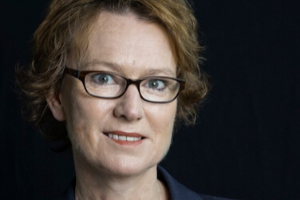
Fiona Armstrong is Executive Director and Founder of Climate and Health Alliance (CAHA) in Australia, a national coalition of health groups with a mission to build a powerful health sector movement for climate action.
She is a co-founder of CLIMARTE: Arts for a Safe Climate; a founding director of the Global Climate and Health Alliance; the architect of the world’s first Framework for a National Strategy on Climate, Health and Well-being for Australia (2017); and a lead author of the Queensland Health and Wellbeing Climate Change Adaptation Plan (2018).
Fiona is the lead author of many of CAHA’s reports, including Our Uncashed Dividend: The Health Benefits of Climate Action; and Coal and Health in the Hunter: Lessons from One Valley for the World. She is regularly invited to speak at national and international events, and appears regularly in media, most recently on ABCTV Weekend Breakfast and in The Canberra Times. Her recent article for The Conversation: ‘Coronavirus is a wake-up call: our war with the environment is leading to pandemics’, with Professor Tony Capon and Dr Ro McFarlane, has been translated in Danish and read over 53,000 times.
DR NATASHA CHASSAGNE
ADJUNCT RESEARCH FELLOW, CENTRE FOR SOCIAL IMPACT, SWINBURNE UNIVERSITY
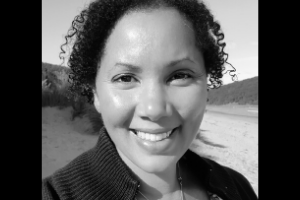
Dr Natasha Chassagne is a writer and researcher on sustainability, wellbeing and development issues. She specialises in the Latin American concept Buen Vivir for community-led sustainability and wellbeing. Natasha holds a PhD on Buen Vivir, as well as a masters in international relations and international law. Prior to her research she worked in sustainability, public affairs and international trade.
FACILITATOR: MISHA KETCHELL
EDITOR, THE CONVERSATION
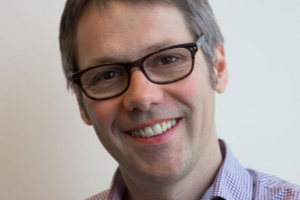
Misha Ketchell is Managing Editor of The Conversation, a news and analysis site written by researchers and academics. He was previously editor of Crikey and founding editor of The Big Issue Australia, editor of The Melbourne Weekly and a reporter and feature writer for The Age. More recently he has worked as a researcher and producer on ABC TV's Media Watch, The 7:30 Report and online at The Drum.
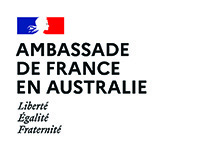
Presented by The Bob Hawke Prime Ministerial Centre and The Conversation, and The Embassy of France in Australia, as part of the French Australian Conversations series
CRISIS AND DENIAL
BROADCAST: THURSDAY 18 JUNE, 6PM - 7.30PM, ACST / 6.30PM - 8PM, AEST
Access Video HERE
What do climate deniers, anti-vaccination activists and COVID-19 conspiracy theorists have in common? Why are they so resistant to 'facts'? Join research psychologist and former politician Dr Carmen Lawrence, social scientist Professor Julie Leask and cognitive scientist Stephan Lewandowsky as they explore why myths and misinformation can be so compelling, who benefits from spreading misinformation, and how we can change people's minds. Facilitated by Misha Ketchell, Editor of The Conversation.
Please register your interest so that we can keep you up-to-date and to submit any questions for the Panellists to consider. A link to this online event will be sent to registrants to view the stream.
PANELLISTS
DR CARMEN LAWRENCE
DIRECTOR, CENTRE FOR THE STUDY OF SOCIAL CHANGE, UNIVERSITY OF WESTERN AUSTRALIA
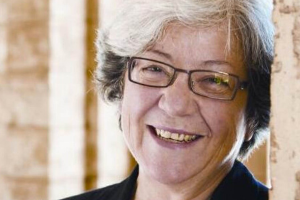
After training as a research psychologist at the University of Western Australia and lecturing in a number of Australian universities, Dr Carmen Lawrence entered politics in 1986, serving at both state and federal levels for 21 years. She was at various times WA Minister for Education and Aboriginal Affairs and was the first woman Premier and Treasurer of a state government.
She shifted to federal politics in 1994 when she was elected as the Member for Fremantle and was appointed Minister for Health and Human Services and Minister assisting the Prime Minister on the Status of Women. She has held various portfolios in Opposition, including Indigenous Affairs, Environment, Industry and Innovation and was elected National President of the Labor Party in 2004.
She retired from politics in 2007. She is now a Professorial Fellow at the University of Western Australia where she is working to establish a centre to research the forces driving significant social change in key areas of contemporary challenge as well as exploring our reactions to that change. The centre will also seek to expose for public discussion the processes most likely to achieve social change where that is a desired objective.
PROFESSOR JULIE LEASK
SUSAN WAKIL SCHOOL OF NURSING AND MIDWIFERY, UNIVERSITY OF SYDNEY
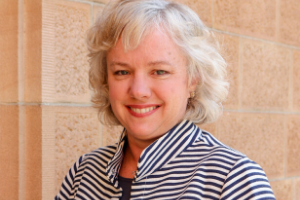
Professor Julie Leask is a social scientist in the Susan Wakil School of Nursing and Midwifery and visiting fellow at the National Centre for Immunisation Research and Surveillance. She has qualifications in nursing and midwifery, a Master of Public Health (USYD, 1998) and PhD in public health (USYD, 2002). Julie is a public health researcher focusing on vaccination and infectious disease risk communication with 131 publications in these fields. She is an advisor to the World Health Organization and was named overall and global category winner of the 2019 Australian Financial Review 100 Woman of Influence.
More Information
Speech: Julie Leask
PROFESSOR STEPHAN LEWANDOWSKY
CHAIR IN COGNITIVE PSYCHOLOGY, UNIVERSITY OF BRISTOL
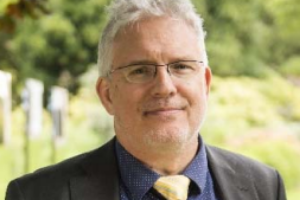
Professor Stephan Lewandowsky is a cognitive scientist at the University of Bristol. His most recent research interest is in exploring the potential conflict between human cognition and the physics of global climate change, which has led him into collaborative research in climate science and climate modeling.
He holds an honorary position as a Visiting Scientist at the CSIRO Oceans, Atmosphere laboratory in Hobart, Tasmania.
FACILITATOR: MISHA KETCHELL
EDITOR, THE CONVERSATION

Misha Ketchell is Managing Editor of The Conversation, a news and analysis site written by researchers and academics. He was previously editor of Crikey and founding editor of The Big Issue Australia, editor of The Melbourne Weekly and a reporter and feature writer for The Age. More recently he has worked as a researcher and producer on ABC TV's Media Watch, The 7:30 Report and online at The Drum.
![]()
![]()
Presented by The Bob Hawke Prime Ministerial Centre and The Conversation, the world's leading free, fact-based news source written by academics and edited by journalists.
While the views presented by speakers within The Bob Hawke Prime Ministerial Centre public program are their own and are not necessarily those of either the University of South Australia, or The Bob Hawke Prime Ministerial Centre, they are presented in the interest of open debate and discussion in the community and reflect our themes of: Strengthening our Democracy - Valuing our Diversity - Building our Future.
The copying and reproduction of any transcripts within The Bob Hawke Prime Ministerial Centre public program is strictly forbidden without prior arrangements.
While the views presented by speakers within The Bob Hawke Prime Ministerial Centre public program are their own and are not necessarily those of either the University of South Australia, or The Bob Hawke Prime Ministerial Centre, they are presented in the interest of open debate and discussion in the community and reflect our themes of: Strengthening our Democracy - Valuing our Diversity - Building our Future. The Hawke Centre reserves the right to change their program at any time without notice.


